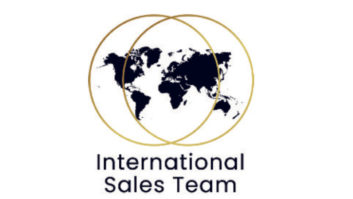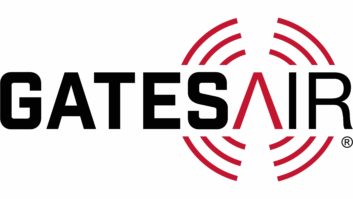
BSW Sales Manager Shannon Nichols is on the phone with a customer. Broadcast equipment suppliers are watching to see what action Congress will take on a bill that would close a longstanding loophole in how states collect sales tax on phone, catalog and Internet sales.
Though the Market Place Equity Act — H.R. 3179 — appears to be gaining momentum on Capitol Hill, it was unclear in early September whether it would be voted on by the end of the year, observers said. A similar version, S. 1832, is moving forward in the Senate.
The Consumer Electronics Association is supporting the measures while online retailers like eBay Inc., Google and Overstock.com oppose the legislation.
The focus of the bills, introduced late last year, is to “improve the states’ rights to enforce the collection of state sales and use tax laws,” according to language in H.R. 3179.
Currently, equipment suppliers and other retailers that sell through a catalog or online must collect sales tax from customers when the seller has a direct or indirect physical presence in a state, known as “nexus” — such as a sales office, manufacturing facility or distribution center.
For example, Broadcasters General Store, according to its website, collects sales tax on catalog and Internet sales from Georgia, Florida, Illinois, Indiana, Ohio, Kentucky and North Carolina.
“Some of our manufacturers may require us to collect tax for other states that they have nexus in and this will be added to your invoice and noted. Anyone not required to pay tax must complete and fax the appropriate state forms for our files,” according to the BGS website. The company is headquartered in Ocala, Fla., but has outside sales offices in Indiana, Kentucky and North Carolina.
The current proposals would expand this requirement to cover sales in any state, whether the seller had a nexus there or not.
Equipment sellers contacted for this story say collecting additional sales tax would create a burden and increase operational costs.
“Let’s put it this way, we are not rushing out to begin collecting taxes from our customers until it is absolutely required. Ideally we would like the current sales tax system to stay in place,” said BSW President/CEO Tim Schwieger.
BSW collects state sales tax for Ohio, Nebraska and Washington. The company would be faced with additional burdens if the new catalog and Internet sales tax law is passed, he said.
“For the sellers, if these new regulations result in a complex tax structure, it will be a terrible burden for the small business owner that will increase expenses and impact cash flow,” Schwieger said. For sellers, “It will mean more money out of their pocket to pay taxes results and less money available to buy equipment. The selling price of goods and services will slightly increase.”
Additionally, “All Internet businesses will be forced to raise prices to cover increased costs associated with the tax collection. In the end the buyer pays more,” said Schwieger.

The SCMS Inc. inside sales group during a recent training session. From left: Ernie Vincent, Brittany Hilton, Michael Sharpstene, Bob Cauthen (president), Mike Phelps, Chuck Johnston and Matt Cauthen (vice president.) The company’s field sales people are not pictured. According to government statistics, 45 states and the District of Columbia impose a sales tax. State tax rates range from 5 percent to 9.35 percent. Penalties and interest rates for non-collection vary from state to state.
Simply collecting sales tax is often a confusing and time-consuming endeavor, according to Bob Cauthen, president of equipment dealer SCMS Inc.
“Each state defines nexus differently. Some states consider you having nexus just by selling into the state or attending a trade show in that state. The two states that we have found are most stringent are Florida and Tennessee,” Cauthen said.
SCMS devotes a one full-time staff position to processing sales taxes, and that workload would surely grow dramatically if new state sales tax collection laws are adopted. “Even though we have it as automated as possible, it is so complex that states even have different tax rates based on the city equipment is sold in,” Cauthen said.
Effective enforcement of a new catalog and Internet state sales tax law would also be complicated, Cauthen believes.
“The government cannot efficiently enforce [the new law] on all the companies on the Internet that are selling into their state, so another approach would have to be developed. The big websites could be audited easily, but what about the guy selling via eBay out of his home?” Cauthen said.
The House bill does have a “small seller” carve-out: “An exception for remote sellers with gross annual receipts in the preceding calendar year from remote sales of items, services and other products in the United States” not exceeding $1 million or in the state not exceeding $100,000.
The proposal can affect manufacturers too. For example, a spokesman for Continental Electronics Corp. said the transmitter company doesn’t sell over the Internet but it does collect state sales tax for two states on parts sold to buyers via phone. “CEC charges sales tax on all sales shipped to Texas (8.25 percent) and Alabama (9–10 percent) addresses,” he said.
Brick-and-mortar retailers have long argued that their online competitors have an unfair advantage because often times there are no added sales tax on purchases.
The Consumer Electronic Association submitted a written statement from President Gary Shapiro to the House Judiciary Committee supporting the Marketplace Equity Act.
“The large loophole in the collection of state sales tax is harming traditional brick-and-mortar retail businesses. The Marketplace Equity Act is an effective solution that will place all retailers on an equal playing field while assisting states in collecting approximately $23 billion in uncollected state sales tax,” according to CEA. “Let’s be clear, the Act would not enact news taxes. It simply closes a collection loophole.”
The Direct Marketing Association, which opposes the new tax collection bills, has asked Congress to require states and other jurisdictions to simplify their sales and use taxes before conscripting every remote seller in the country to become a tax collector for every state with a sales tax.
“There are more than 9,600 taxing jurisdictions in the U.S. today,” stated Jerry Cerasale, DMA’s senior vice president of government affairs, in a press release. “Requiring any business to comply with the rules in all of those jurisdictions in order to do business across state lines is a precipitously high barrier and a very costly one. It would throttle new businesses before they even get off the ground.”
E-commerce specifically has ballooned in the past decade, according to data from the U. S. Department of Commerce, while catalogue sales have faltered, analysts indicate. The government agency estimate of U.S. retail online sales for the second quarter of 2012 was $54.8 billion, an increase of 3.3 percent from the first quarter of 2012.
Online retailing free of sales tax originated with a Supreme Court ruling in 1992 and then the Internet Tax Freedom Act of 1998, which the government passed to help Internet-based business flourish. The act exempts e-tailers from collecting sales tax unless they’re selling to customers in a state in which they have a physical presence or nexus. In 2007, the current version of the Internet Tax Freedom Act was extended to 2014.
According to one member of Congress, it’s likely that a congressional vote on the bills will have to wait until 2013. Virginia Republican Rep. Randy Forbes told The Virginian Pilot newspaper he doubts the legislation requiring sales tax collection on Internet transactions will get through Congress this year.
However, he does expect the bills to pass both houses when they do come up for vote.











